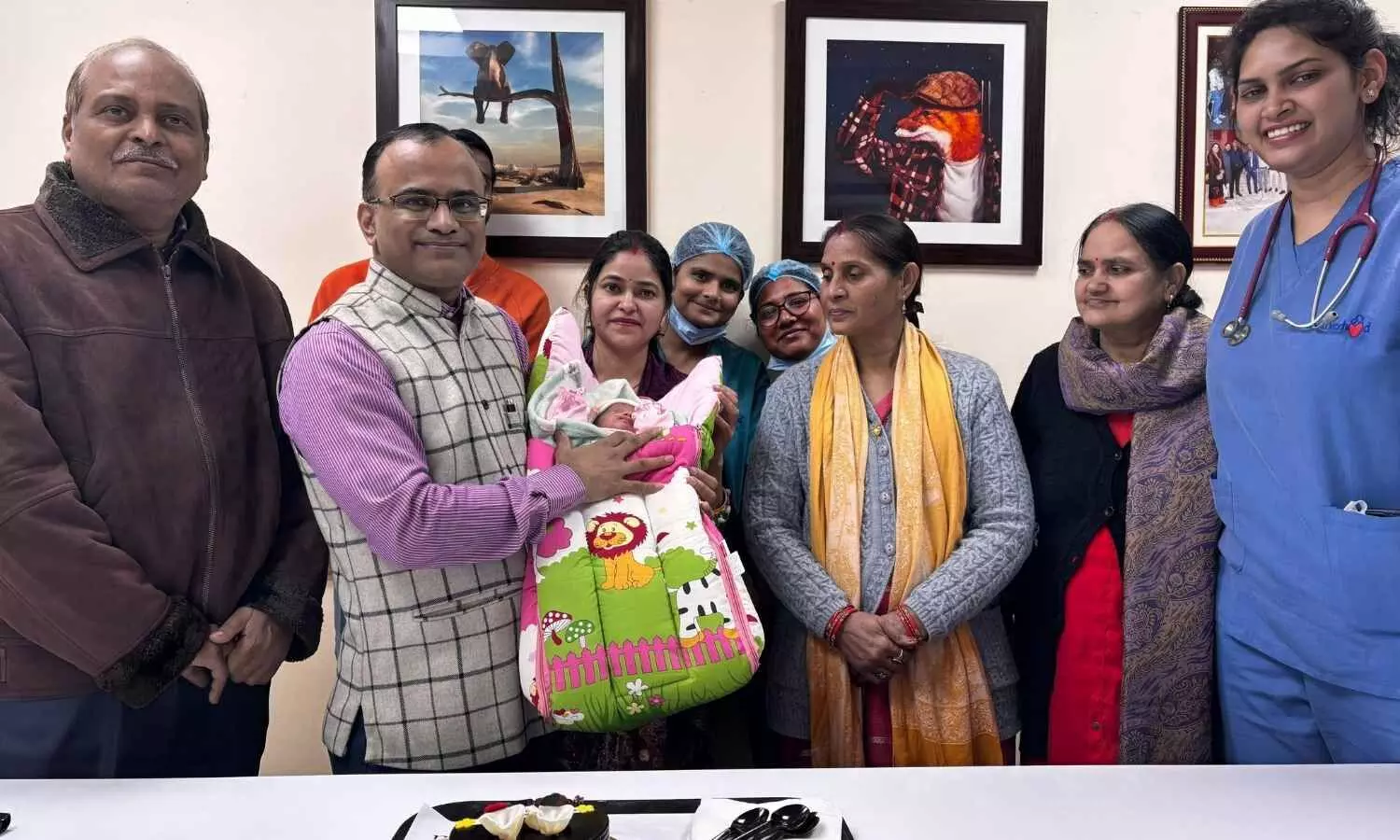Motherhood Hospital Manages 560g Preterm Birth with Advanced Neonatal Care

Uttar Pradesh: Motherhood Hospital, Noida, successfully treated a preterm baby born at 28 weeks, weighing just 560 grams. The baby overcame life-threatening complications and was discharged healthy after two months in the Neonatal Intensive Care Unit (NICU).
Vaishnavi (30) and Saurabh (34) from Banaras faced a challenging pregnancy. Vaishnavi experienced mild bleeding from the fifth to the fourteenth week. Routine antenatal tests revealed gestational diabetes mellitus (GDM) with HBA1C levels of 11.
Dr Prerna Sharma, Consultant - Obstetrician and Gynaecologist at Motherhood Hospital, Noida, initiated treatment with medications, dietary adjustments, and monitoring. By the 20th week, her pregnancy was stable, but she developed high blood pressure, managed with medication.
At 26 weeks, an ultrasound showed impaired fetal growth, mild oligohydramnios, and Doppler flow abnormalities. Medications were administered to improve blood flow, but Doppler readings showed little improvement. At 28 weeks, severe oligohydramnios and fetal growth restriction necessitated an emergency cesarean section.
Dr Prerna Sharma said, “Managing such a high-risk pregnancy required meticulous care and constant vigilance. Vaishnavi’s condition was critical, with severe GDM and FGR compounding the risks. Despite the challenges, timely interventions ensured the best possible outcome. This case highlights the importance of early detection and comprehensive care.”
A team led by Dr Amit Gupta, Dr Nishant Bansal, and Dr Navina Desai provided NICU care. The baby received ventilator support and surfactant therapy to aid lung maturity. Over time, she transitioned to CPAP support and then independent breathing. Sepsis and jaundice were treated with antibiotics and phototherapy.
Dr Amit Gupta, Senior Consultant - Paediatrician & Neonatologist, Motherhood Hospitals, Noida, said, “Preterm babies face immense challenges. Each day in the NICU required careful management of respiratory support and nutrition. This journey showcases the strength of modern neonatal care and the resilience of life.”
Regular cranial ultrasounds showed normal development, and screenings for Retinopathy of Prematurity (ROP) were clear.
Dr Amit Gupta and Dr Nishant Bansal added, “The baby had severe respiratory distress and underdeveloped organs, requiring immediate and sustained intervention. Surfactant therapy and ventilator support were crucial, followed by weeks of CPAP. Kangaroo Mother Care was vital for growth and stability. This outcome reflects our team’s dedication and the hospital’s advanced facilities.”
After two months, the baby was discharged weighing 1.6 kilograms. She continues to grow well, with regular follow-ups planned.
Mr Saurabh, the baby’s father, said, “We are eternally grateful to the team at Motherhood Hospital. Their timely intervention and care gave our daughter the chance to survive and thrive.”


